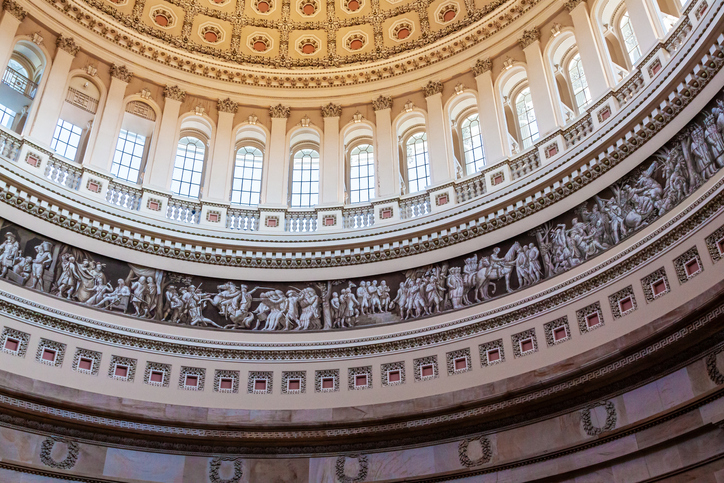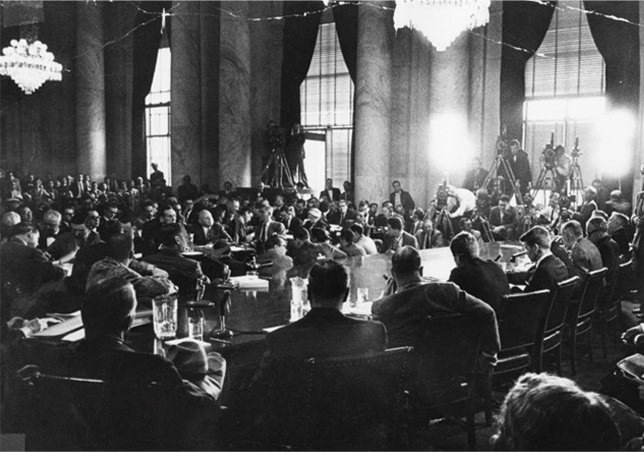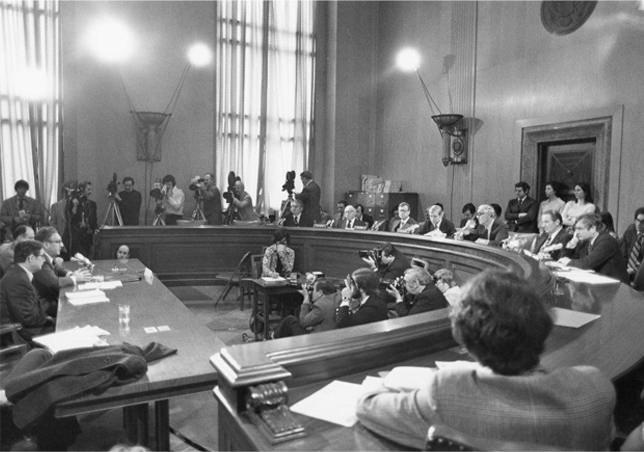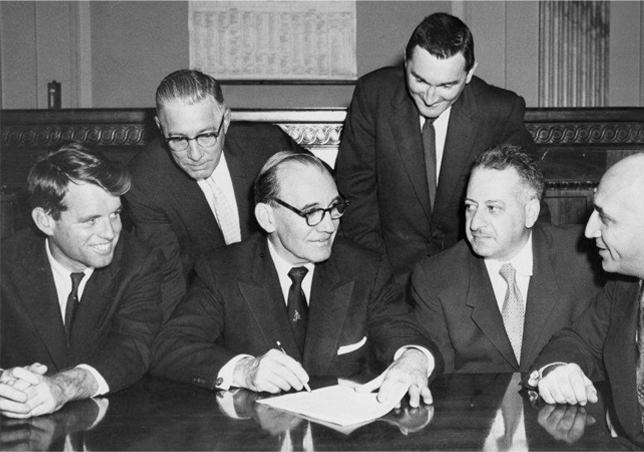About

The origins of the Homeland Security and Governmental Affairs Senate Committee can be traced back to 1816. Beginning as the Committee on the District of Columbia and the Committee on Post Office and Postal Roads, the committee has since undergone transformation. Today, the Committee on Homeland Security and Governmental Affairs is the chief oversight committee of the United States Senate.

The Committee on Homeland Security and Governmental Affairs as we know today did not begin as a committee charged with overseeing how the federal government operates. In 1816 it was originally formed as the Committee on the District of Colombia and the Committee on Post Office and Postal Roads/Post Office and Civil Service. In 1854, the Committee on Post Office and Postal Roads introduced “A Bill to Provide for the Transportation of the Mails upon Railroads,” one of the first pieces of legislation advocating for the Transcontinental Railroad. Eight years later, the Committee on the District of Columbia created the basis for the D.C. Emancipation Bill, signed by President Lincoln on April 16, 1862 and on display in the Capitol Visitor Center. The Emancipation Proclamation was signed eight months later.
Later, in 1842 the Senate Committee on Retrenchment was created. This Committee stemmed from the Committee on Organization, Conduct, and Expenditures in the Executive Departments which then eliminated forty standing and select committees.
These committees were then consolidated in 1921 to form the Committee on Expenditures in the Executive Departments. Its first bill, S 1084, established the system for our National Budget. The Committee on Expenditures in the Executive Department was renamed the Committee on Government Operations in 1952, transforming the Committee’s jurisdiction to overseeing how the federal government operates. In the next two decades the Committee established itself as the primary investigative body of the Senate. When the Committee on Government Operations was created the Permanent Subcommittee on Investigations (PSI) was also created. PSI led its broad mandate to investigate inefficiency, mismanagement, and corruption in Government. Between 1953 and 1954, PSI Chairman Joseph McCarthy (R-Wis.) held 169 hearings on espionage and subversive activities. In April 1954, Senator McCarthy clashed with Secretary of the Army Robert T. Stevens, leading to the Army-McCarthy Hearings and the Chairman’s censorship and ultimate political downfall.


In the 1960’s and 1970’s the PSI’s investigation of labor unions led the Senate to appoint the Select Committee on Improper Activities which gave public prominence to Senator John F. Kennedy and his brother, the PSI’s lead counsel, Robert F. Kennedy. Government financial scandals and labor racketeering were the PSI’s main focus.
During Senator Samuel J. Ervin’s chairmanship from 1972-1974 the “Watergate crisis” erupted. Chairman Ervin was chosen to lead the Senate Select Committee on Presidential Campaign Activities in 1973 that held dramatic televised hearings investigating financial and tactical abuses in President Nixon’s 1972 re-election campaign.
In 1978, the Committee on Government Operations was reorganized as the Committee on Governmental Affairs. Out of this committee came such monumental legislation as the Watergate Reorganization and Reform Act and the Ethics in Government Act, as well as the Joint Committee on Intelligence Oversight Act, which created the Senate Committee on Intelligence.
After the September 11, 2001 terrorist attacks on New York City and Washington, DC the Committee broadened its title to Homeland Security and Governmental Affairs Committee.
Over the years, the Committee on Homeland Security and Governmental Affairs and its predecessors have dealt with a number of important issues, including government accountability, Congressional ethics, regulatory affairs, and systems and information security. In 2003, after the Homeland Security Act of 2002 established the Department of Homeland Security, the Committee adopted primary oversight of the creation and subsequent policies, operations, and actions of the Department. In this capacity, the Committee has introduced and passed a number of bills to improve the Department of Homeland Security and ensure America’s safety, including the Homeland Security Act, implementation of the 9/11 Commission recommendations, the Katrina Investigations, and the National Intelligence Reform Act, which revamped the intelligence community and created the Office of the Director of National Intelligence in 2004.

The National Archives and Records Administration stores a number of historical congressional documents, including documents of the Committee on Governmental Affairs. These documents provide a wealth of information and perspective on the activities of the Committee. Further information can be found on the National Archives and Records Administration’s website.
Established January of 2005, when it replaced the Committee on Governmental Affairs.
Established February 11, 1977, when it replaced the Committee on Government Operations, Post Office and Civil Service, and District of Columbia.
Established March 3, 1952, when it replaced the Committee on Expenditures in the Executive Departments. Terminated February 11, 1977, when it was replaced by the Committee on Governmental Affairs.
Established April 18, 1921. Terminated March 3, 1952, when it became the Committee on Government Operations, which was then replaced by the Committee on Governmental Affairs in 1977.
Chairmen reference: Chairmen of Senate Standing Committees 1789 to present. United States Senate Historical Office.
Throughout its history, the Committee has counted amongst its members multiple presidents, presidential candidates, vice presidents, and vice presidential candidates.
Vice President Kamala D. Harris (2017-2021)
President Barack Obama (2005-2009)
President John F. Kennedy (1953-1956; Chair, Subcommittee on Reorganization)
President and Vice President Richard Nixon (1951-1953)
Vice President Alben Barkley (1936-1947)
Vice President Hannibal Hamlin (1875-1881; Chairman)
U.S. Senate Committee on Homeland Security & Governmental Affairs
340 Dirksen Senate Office Building Washington, DC, 20510
(202) 224-4751